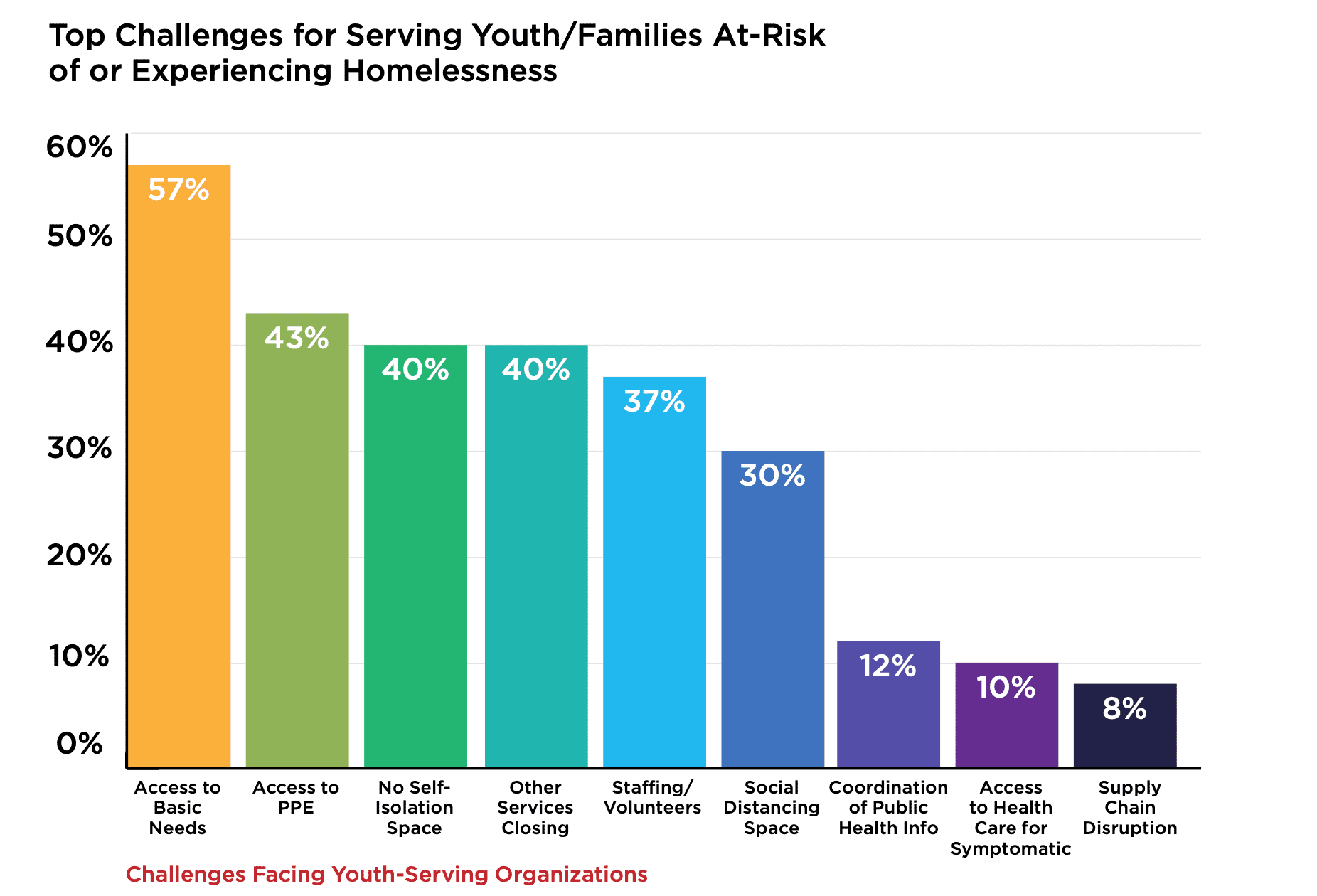Blog: Youth Homelessness in the Face of COVID-19: Challenges and Innovations.

The COVID-19 outbreak has disproportionately impacted people experiencing homelessness. While Canadians were told to isolate at home, physically distance, and regularly wash their hands to prevent the spread of the virus and to protect their own health, youth who are experiencing homelessness often lack a stable home in which to isolate, the ability to physically distance, access to basic hygiene, and the social and mental health supports needed to cope.
The Canadian Observatory on Homelessness and A Way Home Canada jointly released a report, Youth Homelessness and COVID-19, describing the unique challenges youth-serving organizations across Canada are facing as they try to meet the needs of youth who have experienced or are currently experiencing homelessness during the pandemic, and the innovative solutions these organizations have found.
In Canada, youth homelessness refers to young people between the ages of 13 and 24 who are living independently of parents and/or caregivers, but do not have the means or ability to acquire a stable, safe, or consistent residence. According to A Way Home Canada, approximately 20% of people experiencing homelessness are youth, and 6,000 of them experience homelessness every night.
During this pandemic, youth-serving organizations have struggled to stay connected to those who use their services. With the discontinuation of in-person programming, organizations have shifted to online platforms. However, many of their clients do not have access to reliable internet, phones, or other forms of technology. In addition, many of these organizations no longer have the capacity for outreach services, due to a loss of funding, loss of staff, and/or health and safety concerns. Shelters have had to close or reduce their capacity in order to ensure physical distancing. With a reduced ability to connect with youth, it is extremely difficult to offer supports needed to navigate both homelessness and COVID-19 safety measures.

Source: Amanda Buchnea, Mary-Jane McKitterick, David French (2020). Summary Report: Youth Homelessness and COVID-19: How the youth serving sector is coping with the crisis. Toronto, ON: Canadian Observatory on Homelessness Press and A Way Home Canada.
For agencies that work with unhoused or provisionally accommodated youth, 57% noted that meeting their basic needs—such as food and shelter—was one of the biggest challenges they faced. Providing youth with COVID-19 specific supports, such as information on health or emergency income, was an additional challenge. Agencies also reported that youth who were housed lacked mental health support, which can make maintaining stable housing difficult. Furthermore, youth in crisis do not have access to programming such as drop-in centers, in-person social programs, or emergency shelters, and may have to remain in unsafe living arrangements during the pandemic.
Despite all these challenges, many organizations have adapted and found innovative solutions to serve youth. Youth-serving agencies have been working closely with community partners to share information and ensure people experiencing homelessness have access to shelter, healthcare, food, public health support, and mental health support. Agencies have found creative ways to meaningfully connect and engage with youth, such as playing games online, hosting online check-ins and support groups, and rearranging spaces to allow in-person programming while remaining physically distanced . They have also focused their outreach on mental health and well-being. The broader community has increasingly stepped-in to support youth with financial donations and fundraisers, food banks, and supplies.
The COVID-19 pandemic has significantly changed how we see and interact with the world. While it has been difficult adjusting to this new way of life, it has also forced us to rethink how we address wider social issues, and subsequently, how we treat the most vulnerable people in our society. The lessons we are learning as we deal with homelessness during the pandemic need to be carried into the future so we can end homelessness altogether.



